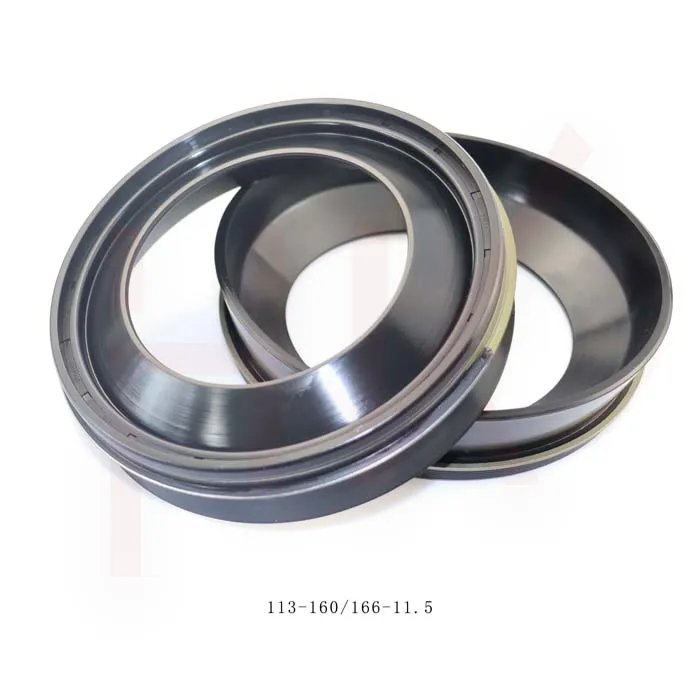Nov . 12, 2025 22:30 Back to list
Seal Kits for Industrial Equipment: Durable, Reliable Solutions
Industrial Seal Kits: Why They Matter More Than You Think
Having been knee-deep in industrial equipment maintenance for years, I can honestly say that seal kits don’t get the applause they deserve. To many, they’re just little rubber rings or gaskets tossed in a box. But in real-world terms, those tiny parts often decide whether a $50,000 hydraulic cylinder keeps working smoothly or gives up after a few months. So buckle up — we’re diving into the ins and outs of seal kits and why they’re the unsung heroes of industrial machinery.
What Exactly Are Seal Kits and Why Are They Essential?
Simply put, seal kits are complete packages of seals, o-rings, wipers, and other sealing components designed to fit specific equipment models. Instead of sourcing parts piecemeal, technicians grab these kits to restore performance without hunting around for random sizes or materials. It’s efficiency meets reliability.
In heavy equipment like hydraulic presses, excavators, or conveyor systems, seals prevent fluid leaks and contamination ingress — disruptions that can slow or halt production. I recall a client’s conveyor that kept overheating because of fluid losses due to a worn seal. A quick swap with a quality seal kit fixed it, saving days of downtime. That's a typical scenario, mind you.
Material Matters: Quality Over Cost Cuts Every Time
I’ve seen it many times: companies opting for cheap seals that promise a lower price tag but deliver premature failure. Why? Because seal material must resist harsh industrial environments — be it abrasive dust, extreme temperatures, or chemical exposure. Common materials in premium kits include nitrile, polyurethane, and fluorocarbon (FKM). They’re not just names but carefully chosen barriers that keep leaks and contamination at bay.
Oddly enough, polyurethane seals stand out for abrasion resistance in conveyor applications. Meanwhile, FKM offers chemical resilience that’s crucial in processing plants. There’s really no “one-size-fits-all” here — customization is king. Most vendors nowadays will tailor kits to match OEM specs or even improve on them. I suppose that’s a neat balance between tradition and innovation.
Testing and Field Conditions: The Ultimate Seal of Approval
Before a seal kit hits the warehouse shelf, the best manufacturers run rigorous tests — pressure cycling, temperature endurance, and chemical resistance among them. Many engineers tell me that these tests are what separate reliable kits from those that end up in the scrap heap after a season.
On site, you’ll notice differences when swapping kits with quality control in mind. Machines run quieter, leaks dry up, and maintenance cycles stretch longer. And frankly, who doesn’t want to avoid that emergency 2 a.m. repair? In real terms, seal kits affect safety, operational cost, and equipment lifespan all at once.
Product Specification Table
| Specification | Typical Range / Details |
|---|---|
| Seal Types Included | Rod seals, piston seals, wipers, o-rings |
| Materials | Nitrile (NBR), Polyurethane (PU), Fluorocarbon (FKM) |
| Temperature Range | -40°C to +150°C (depending on material) |
| Pressure Rating | Up to 350 bar (standard industrial kits) |
| Typical Application | Hydraulic cylinders, pumps, compressors, conveyors |
Comparing Reliable Seal Kit Vendors: What to Watch For
| Vendor | Material Quality | OEM Compatibility | Lead Time | Price Range |
|---|---|---|---|---|
| HKA I Seal | Premium polyurethane & FKM | Full OEM & custom kits | 5-7 days | Moderate |
| Seal Pro Inc. | Standard nitrile, limited FKM | Mostly OEM kits | 7-10 days | Low |
| Industrial Sealers Ltd. | Mixed quality, some polyurethane | Custom kits available but longer lead times | 10-14 days | Moderate to High |
In my experience, it’s worth paying a bit more for a dependable supplier that understands seal kit nuances and helps match the right materials to your equipment. One senior engineer once told me: “The cost of a good seal kit is tiny compared to the headache of unplanned downtime.” I’m inclined to agree.
Oh, and if you want to peek at a trusted source for industrial seal kits, HKA I Seal’s got a robust selection — including options tailored for the most demanding conveyor and hydraulic applications. Just a tip from someone who’s seen a fair share of leaks and fixes.
Final Thoughts on Seal Kits and Industrial Reliability
To wrap this up — if you’re managing industrial operations, don’t overlook seal kits. From design choices to the right vendor, they’re core to minimizing downtime and extending machine life. Sometimes the smallest parts make the biggest difference. What I’ve come to appreciate over years is that investing in quality seal kits doesn’t just protect machinery; it protects your schedule, your budget, and frankly, your peace of mind.
That said, I’m sure every plant has its own story — those random fixes, the unexpected saves, the “aha” moments when a seal kit ordered sight unseen actually does the trick. And those little victories? They keep things humming.
References and reflections:
- Industry insights from hydraulic equipment field service workers, 2018-2023
- Material datasheets from common seal manufacturers, 2023
- Personal notes from machine uptime and maintenance logs (confidential), 2022
-
Reliable Oil Seal Wheel Hub Solutions for Industrial & Automotive Use
NewsNov.17,2025
-
Durable Front Hub Oil Solutions for Industry – HKAiSeal
NewsNov.17,2025
-
Wholesale Hydraulic Pump Motor Seal Kit A4VSO250 | In Stock
NewsNov.17,2025
-
Pump Seal Kits: Essential Components for Industrial Reliability
NewsNov.17,2025
-
TCV Oil Seal - Double-Lip, Spring-Loaded, High Temp & Wear
NewsNov.17,2025
-
Hydraulic Seal Kits: Reliable Solutions for Industrial Equipment
NewsNov.17,2025
-
Combined oil seal 659214 12001903B, fits 119990, NBR OEM
NewsNov.17,2025
Products categories
















